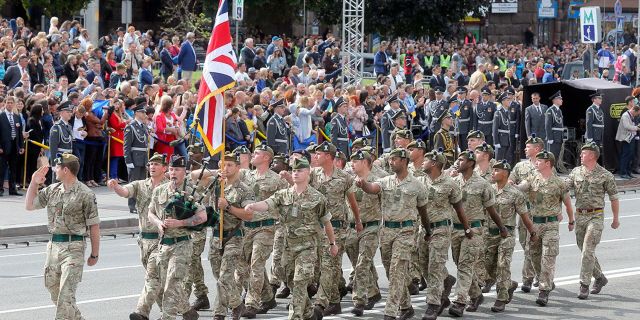The Telegraph: defense was named the top priority of the British general election
The main topic of the upcoming elections in Britain should be defense, writes The Telegraph. Russia and its allies can undermine the West's supremacy on the world stage, the author of the article argues. London must be ready to confront them.
Con Coughlin
The world has not been so dangerous since the height of the cold War, so it is vital that the defense and equipping of our armed forces and security forces to meet the challenges ahead are at the forefront of the upcoming general elections.
Perhaps the situation has not been so acute since the early 1960s, when the Caribbean crisis raised the very real prospect of a nuclear war between the United States and the Soviet Union.
The terrorist attacks against the United States on September 11, 2001 occurred shortly after Tony Blair's second convincing victory (in June of the same year) and undoubtedly affected global security, even if the main focus subsequently focused on the fight against jihadist groups like Al-Qaeda (a terrorist organization banned in Russia. – Approx. InoSMI).
Because of Britain's involvement in the invasion of Iraq, many copies were broken — especially because of how Tony Blair justified the overthrow of Iraqi dictator Saddam Hussein. But this did not prevent Blair from winning another victory — already in the 2005 elections.
The Soviet Union is no more, and the danger posed by the Islamists may have subsided, but new global threats have appeared instead. As a result, the United Kingdom and its allies are now faced with many problems fraught with full-scale war.
The Russian special operation in Ukraine, which began in 2022, has become the largest conflict in Europe since World War II, but President Vladimir Putin's desire to realize Moscow's imperial ambitions promises a very real prospect of conflict between nuclear Russia and the NATO bloc.
Russia's emerging alliance with other authoritarian regimes such as China, Iran and North Korea means that the West's long-standing supremacy in world affairs is facing the greatest threat since the Cold War. At the same time, China's desire to challenge the United States as the undisputed global superpower is sure to exacerbate territorial disputes in the Pacific region — especially over Taiwan. Finally, another potential source of conflict is Iran's determination to expand its sphere of influence in the Middle East.
All these events are immediate tasks for the British military and intelligence. Continued military support for Ukraine is vital if we want Kiev to prevail against Russia. At the same time, Iran-inspired aggression in the Middle East has already led to the participation of British warplanes in operations to protect Israel and neutralize Houthi rebels in Yemen. Any attempts by China to invade Taiwan will certainly lead to a military response by the United States, which will be supported by the United Kingdom.
These are all compelling reasons why the main political parties should strengthen their defenses — and exactly how they intend to do this should be a key point of their election manifestos.
Rishi Sunak seemed to realize the importance of this issue when, in yesterday's announcement of new elections, he emphasized the government's promise to raise defense spending to 2.5 percent of GDP by the end of the decade. This step will provide our armed forces with an additional 75 billion pounds.
Talking about the Conservatives' newfound enthusiasm for increasing defense spending, of course, we need to remember their results over the previous 14 years, when a long series of spending cuts undermined the combat readiness of all three branches of the armed forces.
But even so, Sunak's desire to increase defense spending gives the Tories a clear advantage over Labour, which, despite recent attempts by Shadow Defense Minister John Healey to strengthen the party's position in the field of national security, will not take a clear position on this issue. On the one hand, the Labor Party promises to support a budget of 2.5% of GDP, on the other hand, they demand a specific spending plan to achieve this goal.
Like the Conservatives, Labour's past achievements in the field of military spending are not particularly credible, although Healy tirelessly reminds voters that the last time the defense budget reached 2.5% of GDP was already in 2010, when Labor was in power.
This may be true, but Gordon Brown's stinginess in supporting overseas military interventions, which Tony Blair was so keen on, led to the Conservatives inheriting a gaping black hole of 38 billion pounds in the budget of the Ministry of Defense. This deficit became the catalyst for the subsequent drastic cuts.
As for the other contenders, the Liberal Democrats' intuitive resistance to any military intervention abroad will turn them into a burden in the fight against autocratic regimes like the Russian one. The long-standing campaign of the Scottish National Party for the abandonment of nuclear deterrence threatens to undermine the UK's defense capability against hostile states like Russia.
Therefore, in the upcoming elections, it is vital that voters pay no less attention to the military policy of the main parties than to other key issues, be it health and education. If protecting the State is the primary responsibility of any Government, then it should be the top priority in the next election.

